‘I avoid places where the niqab is banned’
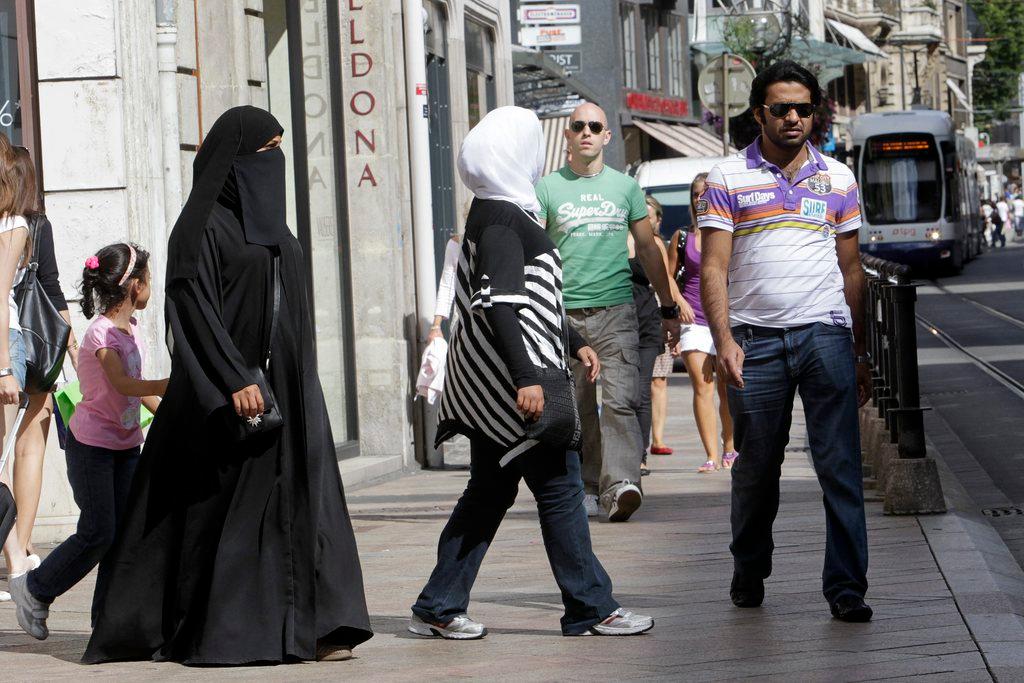
An initiative to ban full-face veils has split Swiss politics, but veiled tourists interviewed by swissinfo.ch at the Geneva Lake Festival were unanimous: if wearing a niqab or burka were banned across Switzerland, they would head elsewhere on holiday.
More and more tourists from Arab countries, especially the Gulf, are visiting Switzerland, above all Geneva. These are the tourists who spend the most in Switzerland, on average CHF500 ($515) a day.
Owing to their regular presence, their large number and their preference for luxury hotels, where they stay for longer than other guests, tourists from the Gulf make up a significant source of income for Switzerland in general and Geneva in particular.
But all that could change if Swiss voters approve an initiative to ban face covering, recently launched by a committee of mostly rightwing and far-right members. This initiative demands that the niqab – a veil that covers the face, showing only the eyes – and the burka – a full face and body covering with a grid covering the eyes – be banned nationwide, following the example of canton Ticino, where a similar law has been in effect since July 1.
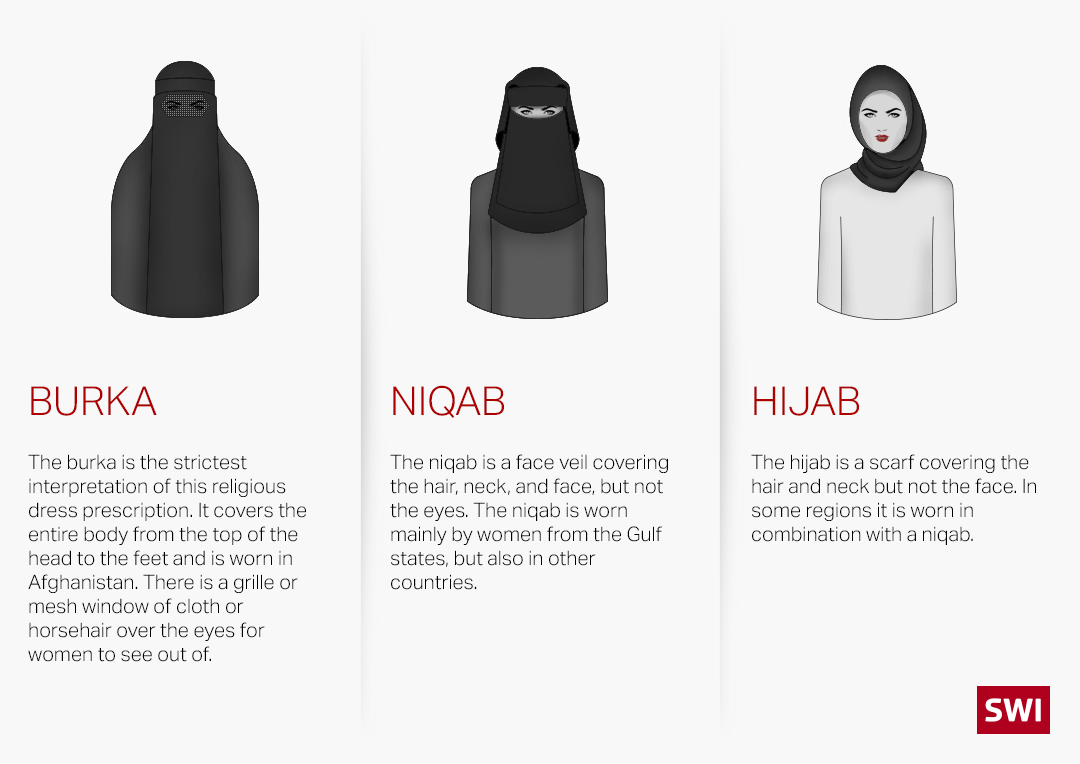
During the annual Geneva Lake FestivalExternal link, one can’t help notice numerous visitors from the Gulf among the crowds. Most women are wearing a headscarf, with only a tiny minority covered in black with only their eyes visible.
One couple from Saudi Arabia are watching their four children in a fun fair. The family is aware of the law in Ticino, but that didn’t put them off coming to Geneva, their first choice.
“But it’s clear that we’ll change our holiday destination if the niqab ban is imposed across Switzerland,” the woman, who has a high school diploma, says categorically.
‘Tourist country’
Further along, near a stall selling Lebanese food, another woman from Saudi Arabia, her husband and three sons are all tucking into shawarmas, a sort of kebab, while discussing their next destination.

More
Burka ban approved in first parliamentary chamber
She admits to feeling slightly uneasy when she learnt of the law in Ticino. “Last year we came to Geneva, which doesn’t have a law like that. But when we heard people talking about the new law, we hesitated about coming back because we thought all of Switzerland was affected. We can imagine visiting other parts of the country, but not Ticino.”
The mother, who has a Masters degree in immunology, says she would no longer come to Switzerland were the initiative to be adopted nationwide, adding she was surprised by the whole project.
“Switzerland is a tourist country – a significant part of its economy depends on this sector. The population is very welcoming and different from other countries. We’re really astonished that such an initiative can come from the people.”
A third woman, originally from Saudi Arabia and studying for a Masters in IT, says if the niqab or burka were banned, “not a single person from the Gulf will come here”.
“Islam is growing,” she states firmly. “As a result, the number of veiled women is increasing throughout the world. If wearing a niqab is banned in Switzerland, it won’t be only families from the Gulf who will give Switzerland a miss but those from many other countries around the world.”
She expects the initiative to be rejected, “because many women wear a veil and they’ll go to Austria if the niqab is banned in Switzerland”. She says that she, too, would go elsewhere if the initiative were approved.
‘Individual freedom’
A woman from the United Arab Emirates buying ice creams for her children said she had not been affected by the law in Ticino “because I don’t go to places where the niqab is banned”.
In the other direction
Saudi Arabia follows a strict version of sharia law and female Swiss visitors to the country are obliged to wear long, black cloaks called abbayas, which are usually paired with a headscarf, niqab or burka. So why shouldn’t women follow Swiss law or customs in kind? One of the women interviewed commented: “The obligation to cover the face is a divine commandment that applies not only to Saudi Arabia but other places, as God is present everywhere. In covering their faces, women are obeying God’s call wherever they are in the world.”
In a well-known shopping centre a woman from Qatar, also a university graduate, is stocking up on chocolate. “I decided not to go to France after a law was passed banning the veil. I’m not going to go to Lugano this year for the same reason. For me, wearing a veil is a question of individual freedom and I won’t accept any limitations on this issue.”
The husband of the first interviewee explained what he thought was behind the wave of bans on full-face veils across Europe.
“In my opinion it’s a war being waged against Islam and pressure on Muslims, whether to prevent them applying sharia and forcing them to not wear a veil, or to dissuade them from coming to Switzerland,” he said.
His wife adds: “Switzerland is a free country, this practice [of wearing a veil] should not be banned here.”
For her part, the immunologist sees in such an initiative the handiwork “of extremist parties looking to make political gains”.
The IT student says she was also surprised that Ticino banned the niqab. She thinks the initiative perhaps reveals “a sense of fear among the Swiss for veiled women following recent terrorists attacks carried out in the name of Islam in several European cities”.
“But you have to remember that these are normal women. They’re no different from anyone else.”
Hotel discretion
The Geneva Hotel AssociationExternal link told swissinfo.ch by email that it would not comment on political issues.
The Swiss Tourism FederationExternal link released a statement in October 2015 in which it expressed its disagreement with the initiative “because we have a reputation around the world as being a tolerant and open country”, said the federation’s Mark Fessler. He added that the Swiss Hotel AssociationExternal link wasn’t planning to campaign against the initiative.
Fessler said it was hard to say what the repercussions of a ban would be at a national level, “but the experiences in Ticino show that in reality problems are almost non-existent. The hotels explain the new law to their Arab guests, who seem to respect it”.
Fessler said the number of guests from the Gulf had increased significantly in recent years. For example, the number of nights spent in Switzerland by visitors from the UAE rose from 140,000 in 2011 to 300,000 in 2015.
In August 2015, some 119,360 nights were spent in Switzerland by visitors from Saudi Arabia, 37,762 (almost a third) were spent in Geneva.
What are the laws like in your country concerning religious clothing? Tell us in the comments section below,
Adapted by Thomas Stephens

In compliance with the JTI standards
More: SWI swissinfo.ch certified by the Journalism Trust Initiative








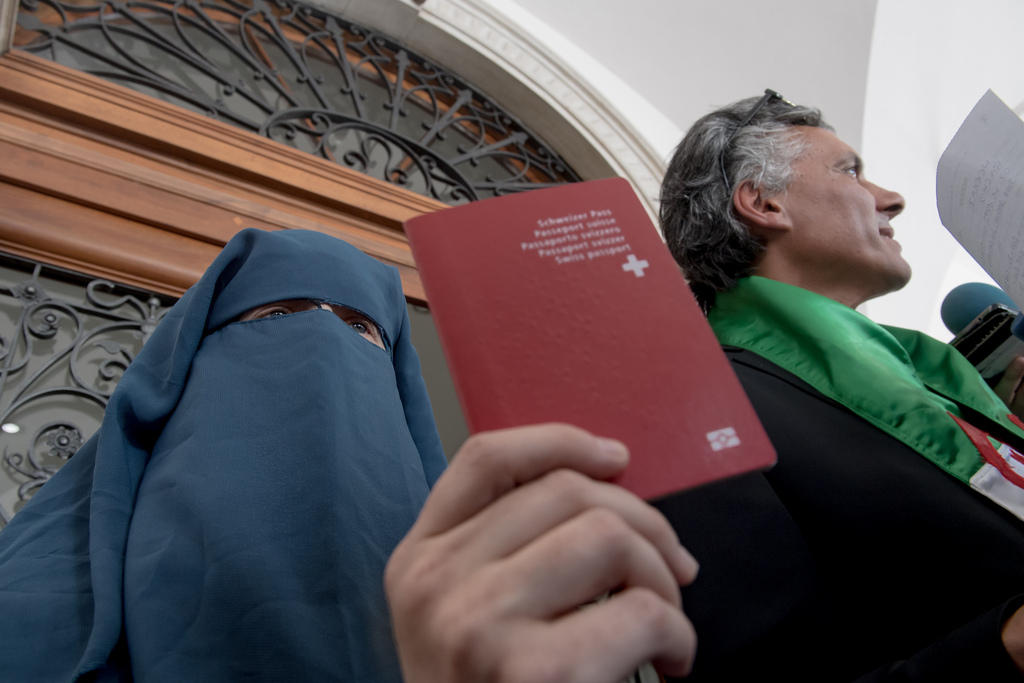
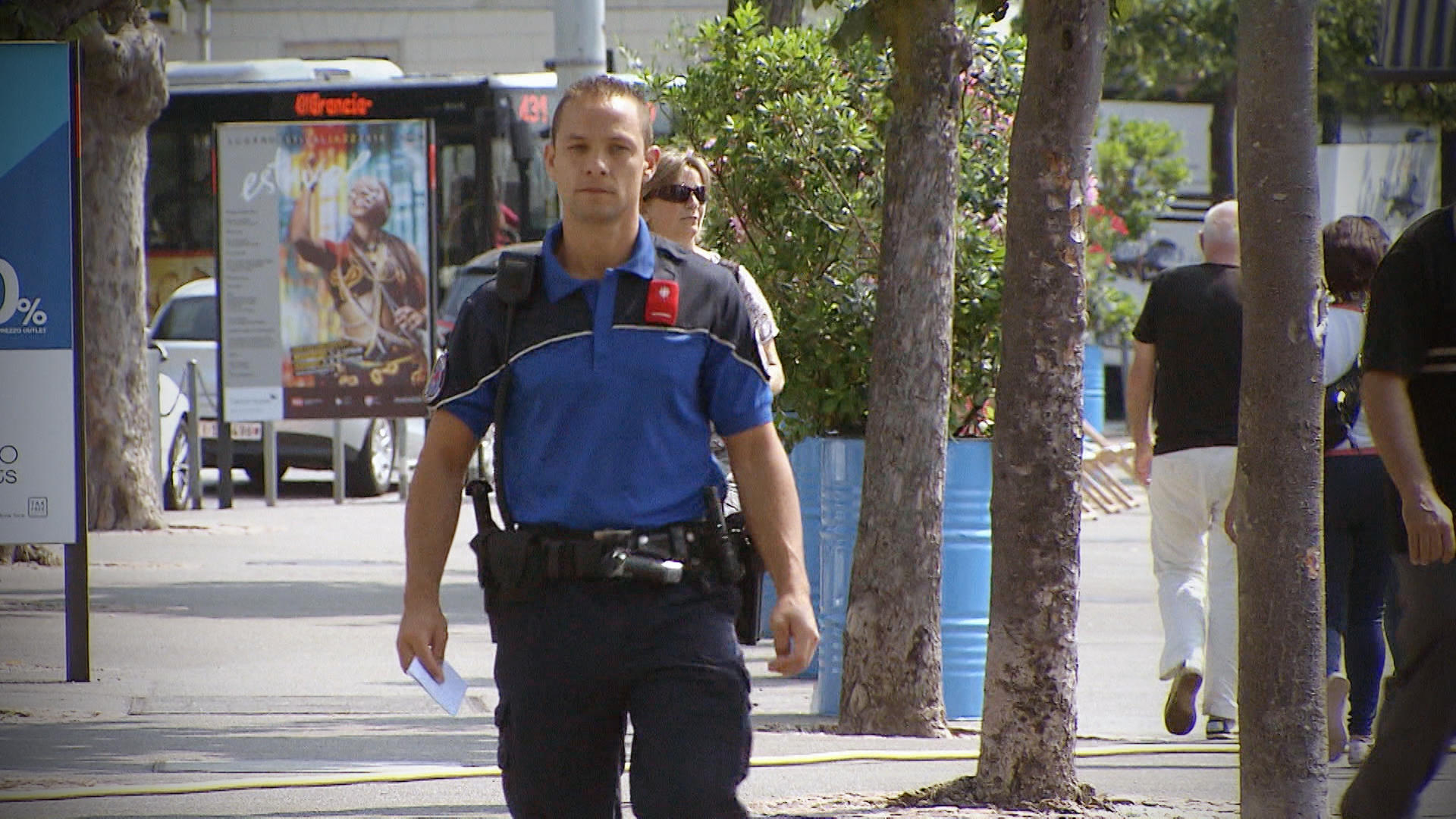
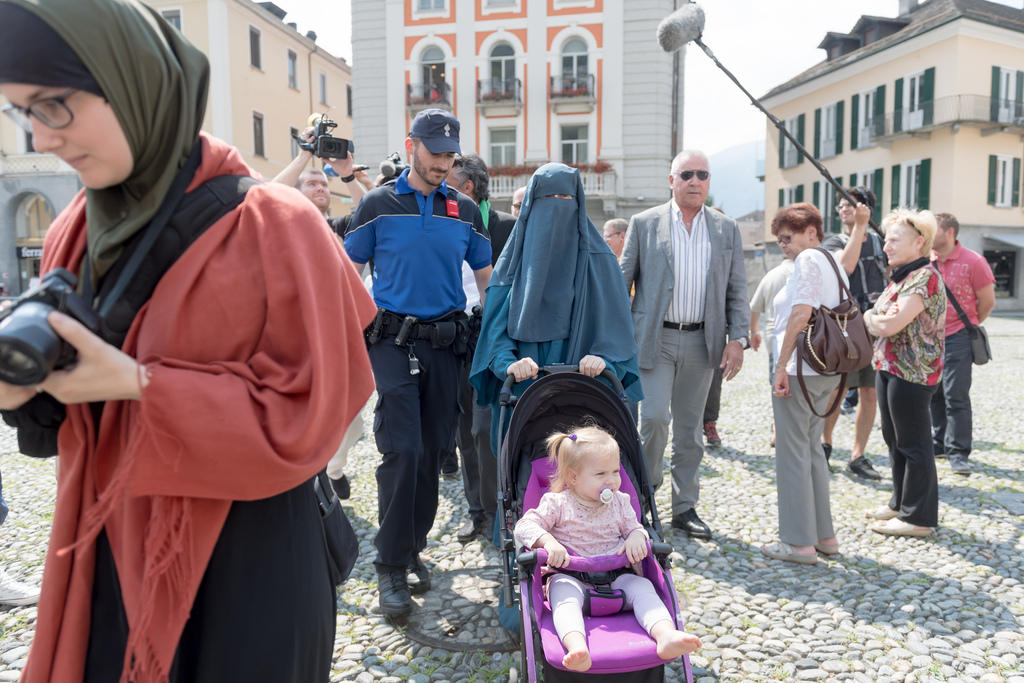
You can find an overview of ongoing debates with our journalists here . Please join us!
If you want to start a conversation about a topic raised in this article or want to report factual errors, email us at english@swissinfo.ch.